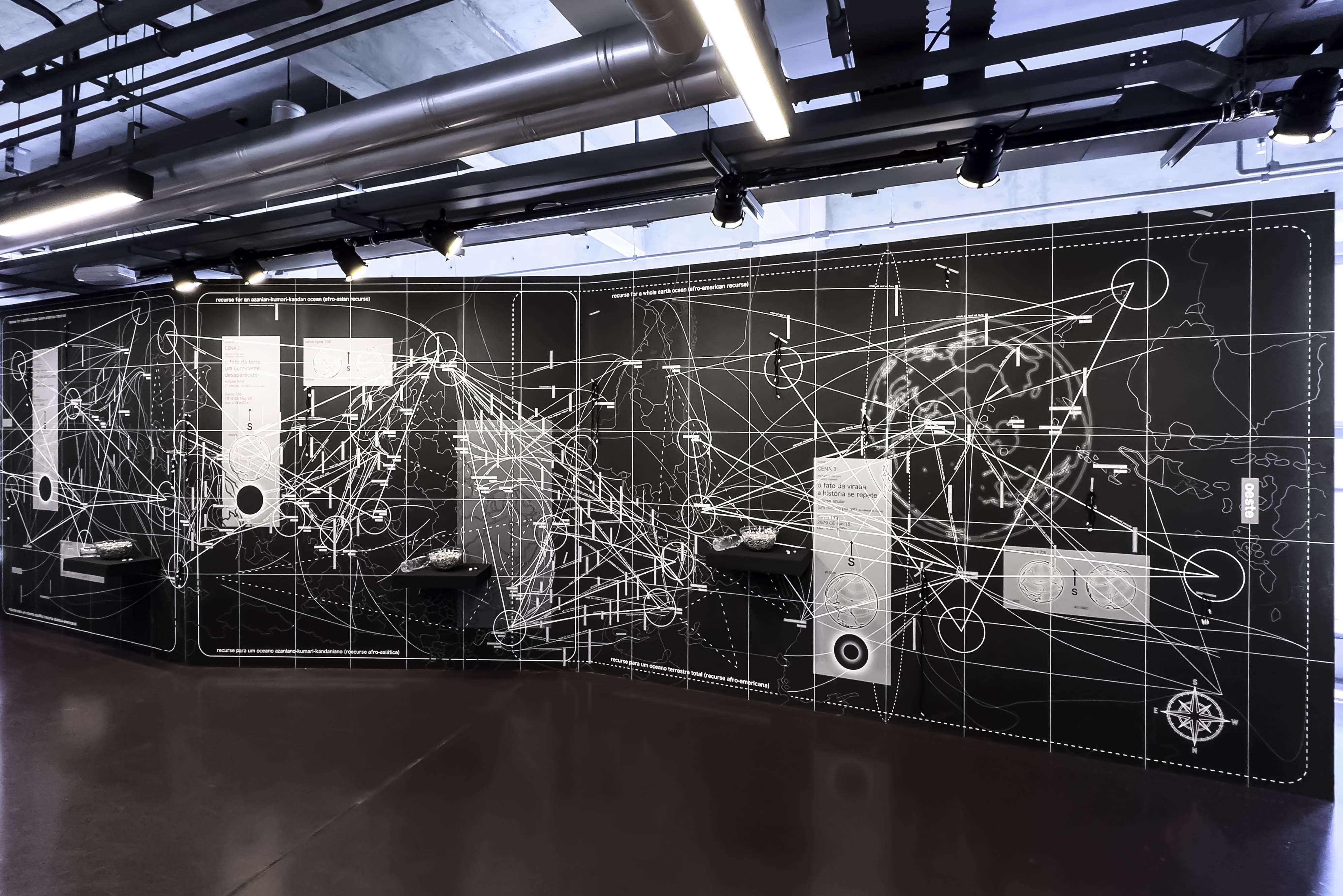
Nolan Oswald Dennis
1988 | Lusaka, Zambia
Lives in Johannesburg
Multidisciplinary artist, graduated in architecture from the University of the Witwatersrand, Johannesburg, and a Master of Science in Art, Culture, and Technology from the Massachusetts Institute of Technology (MIT). His installations, drawings and videos examine the material and metaphysical conditions of decolonization. Through abstract diagrams, drawings and models, his works explore the hidden structures that predetermine the limits of our social and political imagination. His works have been featured at the Palais de Tokyo, Paris, France (2021); the Young Congo Biennale, Kinshasa (2019); the 9th Berlin Biennale (2016); Museu d’Art Contemporani de Barcelona, Spain (2018). He won the FNB Art Prize, and was artist in residence at the NTU Centre for Contemporary Art Singapore and at the Delfina Foundation. He lives in Johannesburg.

A Recurse for Three Oceans, 2023
Installation
Composed of a huge two-meter-high wallpaper, various objects and local water, the installation presents an annotated wall diagram that traces recursive relationships, that is, which repeat as they transform, in the space and time that unfolds in a fractal way in the black world. Starting with the triangular geometry of the Atlantic slave trade, this work uses fractal feedback models to map these relations of power and counter-power in an expanded geosociometry that includes the Indian Ocean, the Pacific Ocean, and other terrestrial geographies. The work explores the material and metaphysical conditions of decolonization through the construction of systems in the context of art, science, economics and politics. Dennis presents a mathematical structure of change, revealed through a spiritual structure of persistent relationships—which we call memory—examined through a secret geography of possibilities.



